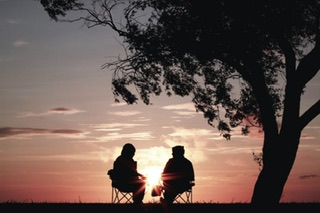
For the past 2 decades, researchers across the world have had the time to study the five Blue Zones areas in which people live exceptionally long lives: Okinawa, Japan; Sardinia, Italy; Nicoya, Costa Rica; Ikaria, Greece and Loma Linda, California.
Based on interviews with hundreds of centenarians, the world’s longevity champions conduct themselves as the “Power 9.”
Move naturally
The world’s longest-lived people don’t pump iron, run marathons, or join gyms. Instead, they live in environments that constantly nudge them into moving.
They grow gardens and don’t have mechanical conveniences for house and yard work. Every trip to work, to a friend’s house, or church starts with a joyful walk.
Purpose
The Okinawans in Japan call it “ikigai,” and the Nicoyans in Costa Rica call it “plan de vida.” Both translate to “why I wake up in the morning.”
Residents in every Blue Zone I visited had something to live for beyond just work. Research even shows that knowing your sense of purpose can add up to seven years to your life.
Downshift
Even people in the Blue Zones experience stress, which can lead to chronic inflammation and has been associated with every major age-related disease.
But they have routines that shed stress: Okinawans take a few moments each day to remember their ancestors, Adventists pray, Ikarians take a nap, and Sardinians have happy hour.
The 80 percent rule
“Hara hachi bu” — the 2,500-year-old Confucian mantra that Okinawans say before meals — reminds people to stop eating when their stomachs are 80% full.
People in the Blue Zones eat their smallest meal in the late afternoon or early evening, and they don’t eat any more the rest of the day.
Plant slant
Beans, including fava, black, soy, and lentils, are the cornerstone of most Blue Zones diets. Meat is eaten an average of only five times per month and in a serving of three to four ounces, which is about the size of a deck of cards.
Wine at 5 p.m.
People in Blue Zones, even some Adventists, drink alcohol moderately and regularly. Moderate drinkers outlive non-drinkers.
The trick is to drink one to two glasses per day with friends and/or with food. And no, you can’t save up all week and have 14 drinks on Saturday.
Belong
All but five of the 263 centenarians I talked to belonged to a faith-based community. Denomination doesn’t seem to matter. Research shows that attending faith-based services four times per month can add four to 14 years of life expectancy.
Put loved ones first
Centenarians in the Blue Zones keep aging parents and grandparents nearby or in the home, which studies show can lower the disease and mortality rates of their children.
They commit to a life partner (this can add up to three years of life expectancy), and they give their children plenty of time and love (this makes the kids more likely to be caretakers when the time comes).
Find your tribe
The world’s longest-lived people choose (or were born into) social circles that support healthy behaviors.
Okinawans create groups of five friends that commit to each other for life. Research shows that smoking, obesity, happiness, and even loneliness are contagious. By contrast, the social networks of long-lived people favorably shape their health behaviors.
Of course, following these rules won’t guarantee that you’ll make it to 100 years old, but you’ll stand an excellent chance of adding more happy years to your life.